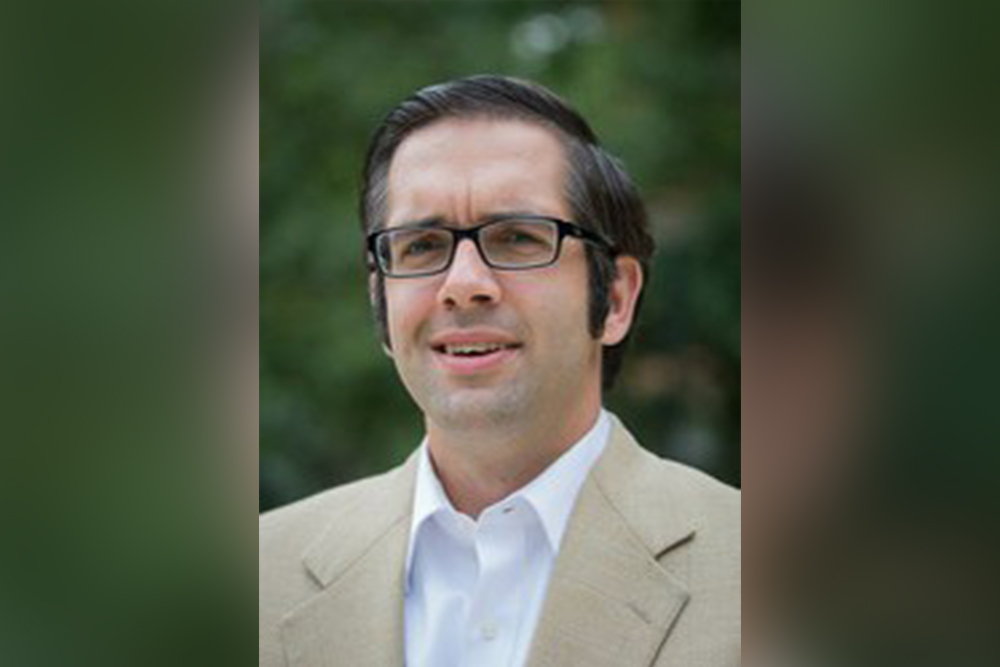Doug Wrenn, a 2002 Eastern Mennonite University graduate, majored in business administration and economics. He is now an assistant professor of environmental and resource economics at Penn State University. He earned at MA in economics in 2008 and a doctorate in agricultural, development and environmental economics in 2012, both from Ohio State University.
Describe your doctoral research and current research interests.
My dissertation work at Ohio State University was in the area of urban/land use economics and the impact of regulatory uncertainty on urban land use patterns. In my current work at Penn State, much of the research is an extension of my dissertation work and focuses on urban economic and urban land use issues. I am specifically interested in household location choice – i.e., what factors determine where households choose to live within and between cities – and how land use regulations impact how urban areas respond to demand shocks and manage urban growth.
In addition to this research, since coming to Penn State, I have started doing research in the area of unconventional energy development and the impact of hydraulic fracturing on labor and environmental outcomes.
I am also part of a large five-year, $20 million U.S. Department of Energy grant that focuses on integrating economic, engineering, and climate models to do risk and impact assessment.
How did your academic studies and professors at EMU prepare you for your graduate studies/current work?
Looking back, I can say without hesitation that one of my main motivations for going to graduate school can out of discussions I had with business and economics professors Chris Gingrich and Rick Yoder [now professor emeritus]. I wasn’t even planning to major in economics when I came to EMU – I was just going for a business degree. However, after taking Chris’s courses my first year and talking with him outside of class, I decided to double-major in economics and business. From there, I continued to become interested in economics and even worked with Rick Yoder on a research project my senior year.
After graduation, I worked with Mennonite Central Committee (MCC) for three years, but I knew even then that I wanted to go to graduate school when I returned. I corresponded with Chris while working with MCC and he helped me a great deal in knowing what things I needed to improve to make my application stronger and what to expect during and after the application process. I can’t know the counterfactual, but I believe that one of the main reasons for my pursuit of graduate work at this level was because of my time at EMU.
What do you think made your application to graduate school stand out among others?
I think it was a combination of my real-world experience working with MCC and my preparation work beforehand that really helped my application. PhD work in economics is very quantitative and I wasn’t completely prepared for it when I returned from MCC. So, as I stated above, I got some good advice from folks at EMU and increased my math base a good bit, which I really think helped improve my application.
What do you think makes EMU graduates distinctive?
I can’t speak for everyone, but for me, I think it is the overall sense of “purpose” that most EMU graduates seem to possess. When I came to EMU, I really took a purely academic approach to my studies and focused largely on grades and traditional academic outputs. However, as my time at EMU progressed, I because more interested in how I could make a difference with what I was learning, and what the overall purpose of my work and research was going to be. I attribute a lot of this change to positive spillover effects from being around other people who saw the world the same way. EMU is an infectious environment in this way and for me it really changed who I was as a person and how I defined myself and my work – as it still does.
What attracted you to attend EMU as an undergraduate?
Honestly, I originally visited EMU because I was interested in running cross country and track and I wanted to stay closer to home (I was raised about 45 minutes away from EMU). However, the ultimate reason that I chose EMU over several other places was the atmosphere I encountered when I visited. I really like the small and intimate setting of the campus, and my short interactions with staff and professors solidified my decision. I am from a small, rural town and I really didn’t want to go to a large school. EMU provided me with a great education, great training for life and work, and a wonderful atmosphere and overall college experience.
What are some favorite memories of your time at EMU?
One of my most fond memories at EMU involves my cross-cultural trip to East Africa. Before that I time, I had never traveled to or experienced life in a developing country, and my experience on trip changed both me and my perspective on the world. I really believe that going on that cross-cultural trips was one of the key factors in my decision to serve with MCC after graduation.
I also have memories of one particular spring break and the service trip I led to Louisiana. I and about 20 other students traveled to western Louisiana to volunteer at a Baptist camp for a week. It was one of the best trips, and weeks, of my time at EMU. And lastly, I guess my most fond memories at EMU involve my friends. I had a close group of friends at EMU and we had a lot of fun.
